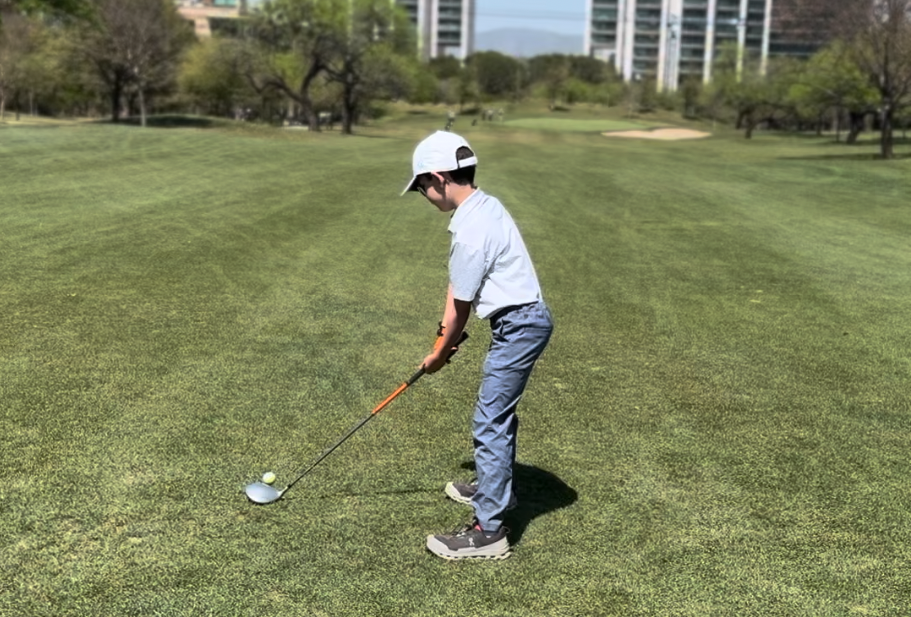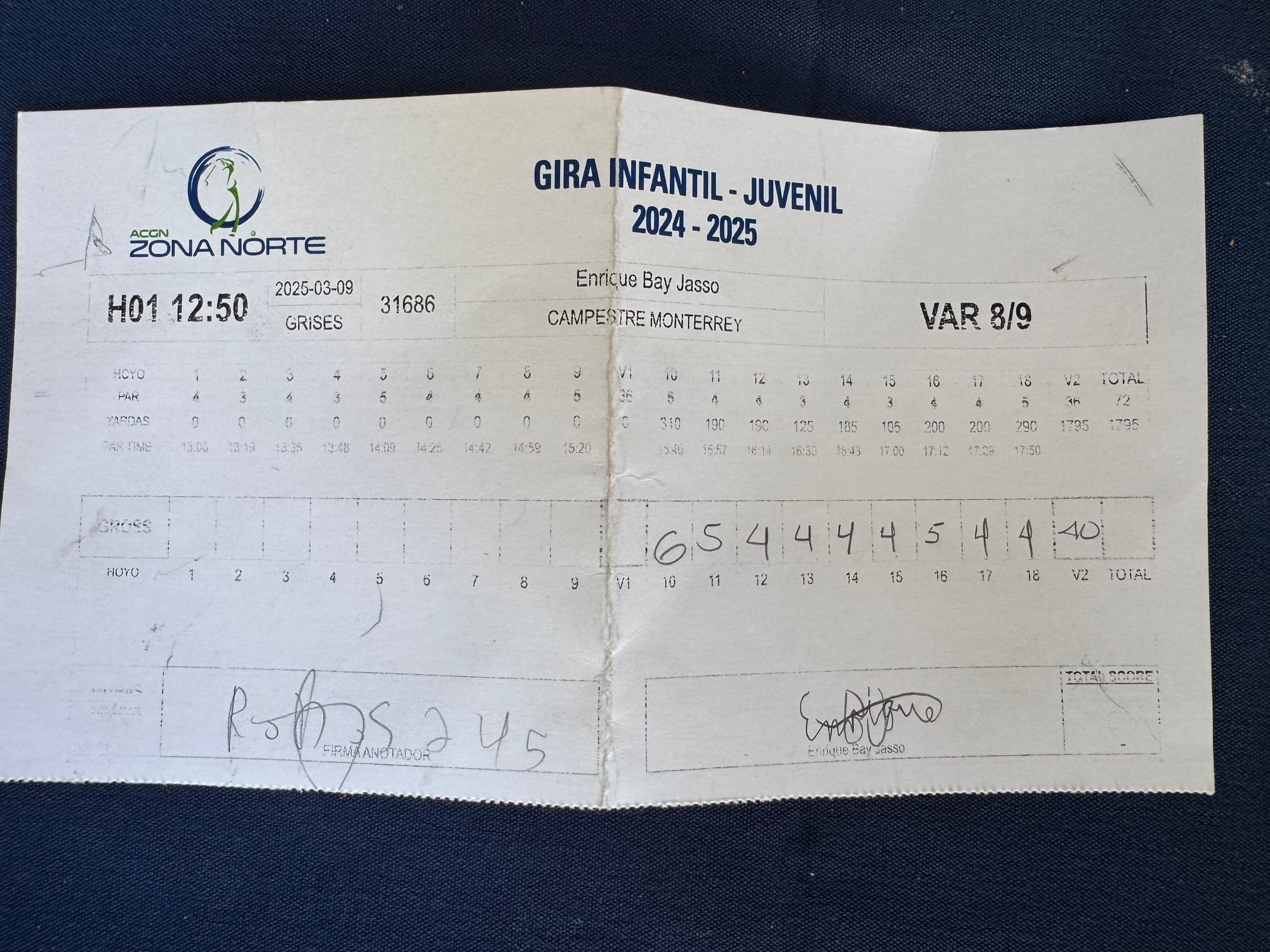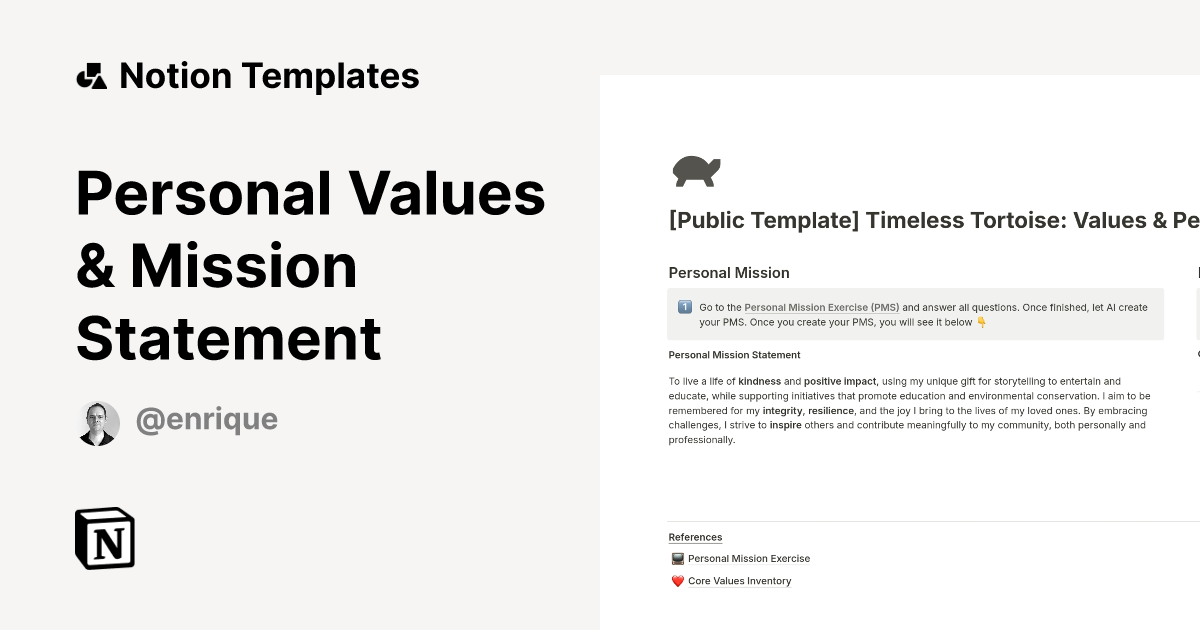Beyond the Scorecard

A few months ago, I was caddying for my son in the final stage of his yearly golf tour. On the first hole, a Par 5, he hit his drive open to the left. It landed in the rough. From the tee box, it looked easy enough to find.
When we got there, we saw a ball exactly where we’d marked it. He was getting ready to hit when I took a closer look.
It wasn’t his ball.
None of his playing partners had gone left, either. Someone must have lost that ball earlier. So we started looking for the real one.
One minute. Two minutes. Three minutes. Nothing.
Honestly, in that moment, the thought crossed my mind—Why not just hit this one? It would be so easy. No one would know. His drive hadn’t even been that bad. Maybe we’d just marked it wrong.
We all like to think we’ll always do the right thing. Sometimes, in small, unplanned moments, you feel the pull to take the easy way out.
"Could that actually be your ball?" We were trying to convince ourselves. And so, Henry was getting ready. Swing and continue, it would be so easy.
But it didn’t feel right.
“Henry, you know, it wouldn’t be right to hit this ball if we don’t think it’s yours.” Without hesitation, he looked up and said, “I agree, Dad.”
And so, we decided to take the penalty drop.
As he was walking back to pick a spot, we spotted it—HIS ORIGINAL BALL, just a few feet behind where we’d been standing all along. I don’t know if it was the golf gods smiling on us; it felt like a reward.
The rest of the round wasn’t perfect. He hit into the water—twice... but he rescued a bogey both times.
And on the last hole, he had a putt for eagle... and made birdie instead.
Integrity matters more than the result. I've always known and lived liked like that. But this was one of those moments that reminded me it’s not always easy to live up to that idea.
Parenting is hard. We’re not perfect. We get tired. We get competitive. We want our kids to feel good, to have the best shot at success, to avoid disappointment. Sometimes those good intentions can blur the line between right and almost right.
In the end, he shot the best round of his life. A 40. His previous best was 42.

It matters to know what you believe in, before you’re standing in the rough trying to decide whether to take a penalty. You have to know your core values so you can grasp on them, especially when you least expect to need them.
It’s tempting to let the little things slide. To look the other way when it’s “just one shot.” To justify a small shortcut.
But that’s when it matters most.
Your kids are always watching, not just what you say, but what you do when no one else is paying attention.
It was never about the one penalty stroke. It was about showing my son—and reminding myself—that doing the right thing isn’t situational. It’s a choice you make over and over. Even in the smallest, most ordinary moments.








Comments ()